This quarter Simi is joined by Sarah Kaplan, Professor of Strategic Management and Director, Institute for Gender + the Economy, Rotman School, University of Toronto to discuss the role of academia in powering systemic change around women and girls.
SS: What first drew you to study the intersections between gender and finance?
SK: I was fascinated by the possibility to think of finance as a tool for social change rather than the enemy of the women’s movement. There is so much inequality of many different kinds, including gender inequality, embedded in our financial system and I wondered if there might be a way to uncover those hidden (or not-so-hidden) dynamics and use those insights to make change.
For example, much of venture capital is allocated through “pitches” to investors. Well, it turns out that pitching is a gendered process. Women aren’t socialized to pitch. And, even if they do give a good pitch, we all are socialized in ways that make us resist women when they ask for things. In this case, most people tend to think that the solution is to train women to be “more confident” or “pitch better” or “negotiate more effectively.” But, what if we changed the process so that pitching wasn’t part of it? What if we used peer mentoring and evaluation instead? Evidence suggests that using alternative approaches leads to more equitable outcomes. But, changing the system is harder than telling women to fix themselves, so we tend not to do it. I’m interested in understanding how we can change the system.
SS: If I gave you 1m USD and asked you to invest it for a positive women effect, what would you do with it?
So much of the field of gender lens investing has been built on a few pieces of data about correlations between gender and performance. But, we don’t really understand the underlying causal drivers of those correlations. And, we don’t understand what kinds of interventions might help. Indeed, often well-intentioned efforts have paradoxical effects. I’m in the process of launching a research Institute for Gender + the Economy at the Rotman School. As an academic, I feel that universities are potentially uniquely positioned to add insight into systems change. So, I’d put the USD 1 million towards research and dissemination of validated ideas for change.
SS: What are the burning research questions that the field needs to tackle in the next 5 years?
SK: I am hoping that Institute for Gender + the Economy can sponsor and publicise research on a wide range of topics that operate at the intersection of gender and economic action, including: the impact of quotas, the relationship between diversity and performance, the role of tokens, the dynamics of women’s entrepreneurship, career pipelines, the gender pay gap, female confidence and risk-taking, masculinity, work-life balance, sexual harassment, the gendered impact of the gig economy, women as a “market,” and many other areas.
SS: The disparity in women's access to capital and wealth creation is certainly not new. What, in your estimation, has caused the surge of interest and activity in this area during the last decade?
SK: My sense is that the early successes of microfinance in places such as Bangladesh were the starting point of the broader conversation we are having today. While more recent research has suggested that microfinance has a problematic relationship with women’s empowerment, there was a discourse at the time that focused on women as better “investments” who paid back more reliably and created more prosperity for their families and communities. And, that discourse got people thinking all over the world about why women – whether they are subsistence farmers in Bangladesh or high tech entrepreneurs in Silicon Valley – did not have the same access to capital as men. While I recognize that there are important differences between these different groups of women, there are also important points of contact – many of the barriers are similar and we in more developed economies can learn a lot from the experiments being run in the developing world.
SS: Tell us more about your new institute.
SK: The Institute for Gender and the Economy at the Rotman School will seek to uncover business, career and investment opportunities in finance, business, management, entrepreneurship and the economy by promoting gender analysis in research and education. Recognizing that women’s contributions as entrepreneurs, investors, employees and leaders are often undervalued, the Institute will build on a foundation of rigorous research to promote an understanding of gender inequalities and how they can be remedied – by men and women – in the world of business and the economy. We will support and promote academic research that will advance our understanding of the dynamics of gender in the economy. In addition, we will work to translate and disseminate research on gender in finance and business to practitioners in order to support change in their practices – with a particular focus on “making the case” and “taking meaningful action.” Having just been founded in the last month, we are actively looking for corporate and individual partners to get support and engaged in our activities.






